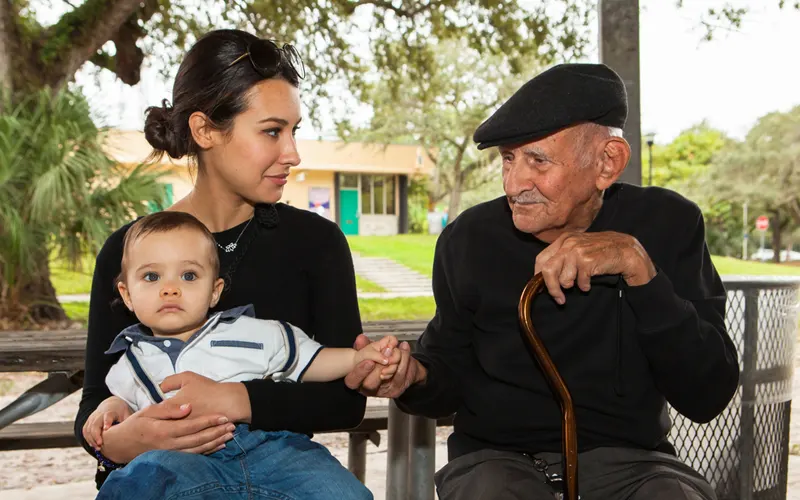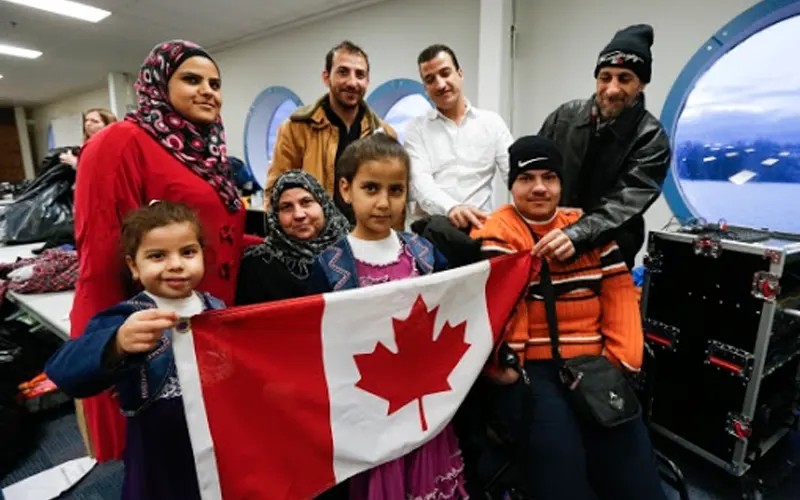The Atlantic Immigration Program is a federal immigration program that helps employers to recruit skilled foreign workers and international graduates to meet labour needs. This new employer-driven program builds on the success of the Atlantic Immigration Pilot Program, which closed in December 2021.
Immigration, Refugees and Citizenship Canada (IRCC) working with provincial governments in Atlantic Canada to create this program, which aims at bringing more skilled immigrants to Atlantic Canada, to build lives there and help the economy grow in these provinces:
- New Brunswick
- Newfoundland and Labrador
- Nova Scotia
- Prince Edward Island
Key Points:
- An employer-driven program
- No Age Limit
- Low IELTS requirement (CLB – 4)
- Low Processing time
- No LMIA required
- No Express entry or CRS score required
- Can Obtain work permit before Permanent Residence
- Spouse open work permit
Programs under the AIP:
- Atlantic Intermediate Skilled Program (AISP)
- Atlantic High Skilled Program (AHSP)
- Atlantic International Graduate Program (AIGP)
Atlantic Immigration process:
Employer designation
- Employer in Atlantic Canada who is interested in using the Atlantic Immigration Pilot (AIP) to fill a full-time job vacancy contacts Provincial Immigration Office to express interest.
- Employer contacts a participating settlement service provider organization and commits to preparing their workplace to welcome newcomers.
- Employer applies to the province to become a designated employer.
- Atlantic Province designates the employer.
- Employer finds a recruit that meets the program criteria based on their initial assessment and offers them a job.
Employer designation
- Employer connects their recruit with a participating settlement service provider organization.
- Candidate contacts a settlement service provider organization of their choice for a needs assessment service that will result in a settlement plan for themselves and their family.
- Settlement service provider organization provides candidate with a settlement plan after the needs assessment.
- Candidate sends a copy of the settlement plan to the employer
- Employer completes the provincial endorsement application, identifying the appropriate program based on candidate’s work experience and including the job offer and settlement plan, and sends it to the province.
(In cases where it is urgent to fill the position, candidates may be eligible for a temporary work permit. Certain conditions apply, such as having a valid job offer, a referral letter from the province and a commitment to apply for permanent residence).
- Province reviews and approves the endorsement application. Province sends candidate an endorsement letter.
Immigration application
- Candidate completes their permanent residence application and sends it to Immigration, Refugees and Citizenship Canada (IRCC) including their endorsement letter and any other required documents.
- IRCC processes the application - Applications will be processed in six months or less in the majority of cases.
- Approved candidate and their family come to Atlantic Canada.
- Employer supports candidate and their family’s settlement and integration in their workplace and community in partnership with settlement service provider organization.
Atlantic High-Skilled Program (AHSP) and Atlantic Intermediate-Skilled Program (AISP) common criteria:
(1) valid job offer from a designated employer
As an employer-driven program, all applicants are required to obtain a valid job offer from a designated employer in one of the Atlantic provinces
- For full-time, indeterminate employment.
- Should not be seasonal.
- Supported by a provincial certificate of endorsement.
(2) Work Experience
Applicants must demonstrate that they have obtained work experience for at least one year within the last three years.
- In one occupation under NOC category (work with different employers is permitted)
- Paid work (i.e. volunteer work, unpaid internships do not count)
(3) Education
Applicants must demonstrate they have one of the following:
- A Canadian secondary (high school) or post-secondary certificate, diploma or degree; or
- A completed foreign educational credential.
(4) Language ability
Applicants must prove language ability of at least fluent basic level in either English or French in order to apply to the program. This is equivalent to Canadian Language Benchmark (CLB) 4.
(5) Proof of funds
The required settlement funds must be equal to or greater than the sums listed below for each family size.
| Number of Family Members (including those you support that aren’t immigrating with you) |
Funds Required (in Canadian dollars) |
| 1 |
$3,303 |
| 2 |
$4,112 |
| 3 |
$5,055 |
| 4 |
$6,138 |
| 5 |
$6,962 |
| 6 |
$7,852 |
| 7 |
$8,742 |
| For each additional family member |
$890 |
Caregiver Placement Canada is presently working under the Atlantic Intermediate-Skilled Program (AISP)
Find out if you are eligible or not for the AISP under NOC 3413 and 4412
You have work experience as one of the following:
- As a registered nurse or registered psychiatric nurse (NOC skill level A 3012)
- As a licensed practical nurse (NOC skill level B 3233)
You also have one of the following job offers:
- A nurse’s aide, orderly or patient services associate (NOC skill level C 3413)
Work experience
In the last 3 years, you must have worked at least 1,560 hours (30 hours per week). How to calculate hours:
- Count hours worked in part-time and full-time jobs.
- The hours must be in one occupation, but they can be with different employers.
- You must have been paid for these hours.
- Volunteering or unpaid internships don’t count.
- Don’t count hours when you were self-employed.
- These working hours can be inside or outside Canada.
- The hours must have been accumulated over a period of at least 12 months.
Education
You must have 1 of the following:
- A Canadian secondary (high school) or post-secondary certificate, diploma or degree from a recognized institution.
- A foreign degree, diploma, or certificate equal to a Canadian credential. You need an educational credential assessment (ECA) report from a recognized organization to show your credential is valid and equal to a Canadian credential. If you already have an ECA report, it must be less than 5 years old when we receive your permanent resident application.
You can get your assessment from:
- Comparative Education Service – University of Toronto School of Continuing Studies.
- International Credential Assessment Service of Canada (ICAS)
- World Education Services (WES)
- International Qualifications Assessment Service (IQAS)
- International Credential Evaluation Service (ICES)
Language testing
You must take one of the language tests approved by the IRCC (CELPIP, IELTS, TEF or TCF)). It will show you can communicate in English or French well enough to live and work in Canada. If you have taken an approved test, you can send those results if they are less than 2 years old.
| Minimum score needed for CLB / NCLC 4 |
| Your score must be equal or greater to the values below |
| Test |
Reading |
Writing |
Listening |
Speaking |
| CELPIP–General |
4 |
4 |
4 |
4 |
| IELTS–General |
3.5 |
4.0 |
4.5 |
4.0 |
| TEF Canada |
121 |
181 |
145 |
181 |
| TCF Canada |
342 |
4 |
331 |
4 |
Common Job Titles:
- Health care aide
- Hospital attendant
- Long term care aide
- Nurse aide
- Nursing attendant
- Orderly
- Patient care aide
- Patient service associate
- Personal care attendant - medical
- Psychiatric aide
- Resident care aide - medical










